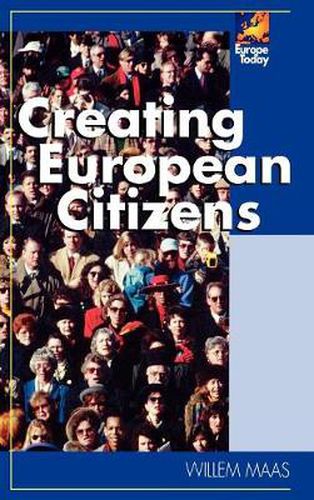Readings Newsletter
Become a Readings Member to make your shopping experience even easier.
Sign in or sign up for free!
You’re not far away from qualifying for FREE standard shipping within Australia
You’ve qualified for FREE standard shipping within Australia
The cart is loading…






Exploring a key aspect of European integration, this clear and thoughtful book considers the remarkable experiment with common rights and citizenship in the EU. Governments around the world traditionally distinguish insiders (citizens) from outsiders (foreigners). Yet over the past half-century, an extensive set of supranational rights has been created in Europe that removes member governments’ authority to privilege their own citizens, a hallmark of sovereignty. The culmination of supranational rights, European citizenship not only provides individuals with choices about where to live and work but also forces governments to respect those choices. Explaining this innovation-why states cede their sovereignty and eradicate or redefine the boundaries of the political community by including foreigners -Willem Maas analyzes the development of European citizenship within the larger context of the evolution of rights. Imagining more than simply a free trade market, the goal of building a broader and deeper community among peoples with a destiny henceforward shared -creating European citizens-has informed European integration since its origins. The author argues that its success or failure will not only determine the future of Europe but will also provide lessons for political integration elsewhere.
$9.00 standard shipping within Australia
FREE standard shipping within Australia for orders over $100.00
Express & International shipping calculated at checkout
Exploring a key aspect of European integration, this clear and thoughtful book considers the remarkable experiment with common rights and citizenship in the EU. Governments around the world traditionally distinguish insiders (citizens) from outsiders (foreigners). Yet over the past half-century, an extensive set of supranational rights has been created in Europe that removes member governments’ authority to privilege their own citizens, a hallmark of sovereignty. The culmination of supranational rights, European citizenship not only provides individuals with choices about where to live and work but also forces governments to respect those choices. Explaining this innovation-why states cede their sovereignty and eradicate or redefine the boundaries of the political community by including foreigners -Willem Maas analyzes the development of European citizenship within the larger context of the evolution of rights. Imagining more than simply a free trade market, the goal of building a broader and deeper community among peoples with a destiny henceforward shared -creating European citizens-has informed European integration since its origins. The author argues that its success or failure will not only determine the future of Europe but will also provide lessons for political integration elsewhere.